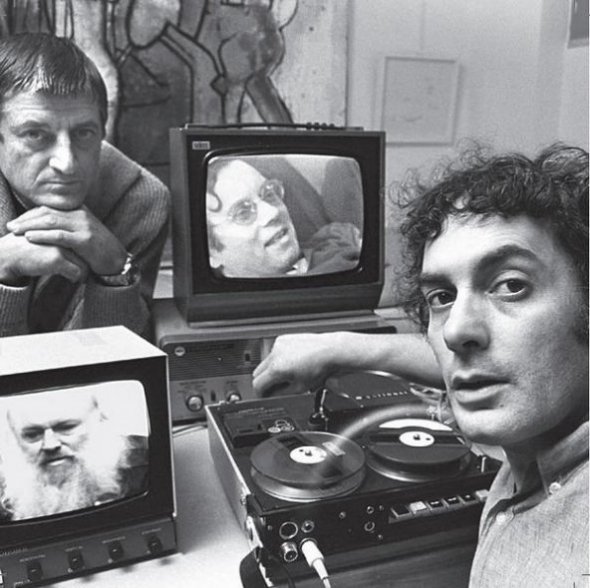Towards a post-media era
Félix Guattari's key statement on 'post-media'. Translated by Alya Sebti and Clemens Apprich (with additional modifications by Neinsager, March, 2013 updated March 2013)
The junction of television, telematics and informatics is taking place before our eyes, and will be completed within the decade to come.
The digitisation of the television image will soon reach the point where the television screen is at the same time that of the computer and the telematic receiver. Practices that are separated today will find their articulation. And what are passive attitudes today may perhaps begin to evolve. Cabling and the satellite will allow us to zap through 50 channels, while telematics will give us access to countless image databases and cognitive data. The element of suggestion, even hypnotism, in the present relation to television will vanish. From that moment on, we can hope for a transformation of mass-media power that will overcome contemporary subjectivity, and for the beginning of a post-media era of collective-individual reappropriation and an interactive use of machines of information, communication, intelligence, art and culture.
Through this transformation the classical triangulation – the expressive chain [chaînon expressif], the object of reference [l’objet référé] and the meaning [signification] – will be reshaped. For instance, the electronic photo is no longer the expression of a univocal referent but the production of a reality among others. The television news was already composed of several heterogeneous elements: the figurability of the sequence, the modelling of subjectivity according to prevailing patterns, normalising political pressure, the concern to keep singularising ruptures to a minimum. At present such production of immaterial reality takes precedence in all fields, ahead of the production of physical connections and services.
Should one be nostalgic about ‘the good old days’ when things were as they were, regardless of their mode of representation? But did these ‘good old days’ ever exist anywhere other than in the scientific and positivist imaginary? Already, during the Paleolithic age – with its own myths and rituals – expressive mediation had distanced itself from ‘reality’. In any case, all prior formations of power and their particular ways of shaping the world have been deterritorialised. Money, identity, social control fall under the aegis of the smart card. Far from being a return to earth, the events in Iraq made us lift off into an almost delirious universe of mass-media subjectivity. New technologies foster efficiency and madness in the same flow. The growing power of software engineering does not necessarily lead to the power of Big Brother. In fact it is way more cracked than it seems. It can blow up like a windshield under the impact of molecular alternative practices.
Copyright © Félix Guattari, 1990. Unpublished text of October1990, published in the journal Chimères, n.28, spring-summer1996.
Mute Books Orders
For Mute Books distribution contact Anagram Books
contact@anagrambooks.com
For online purchases visit anagrambooks.com







